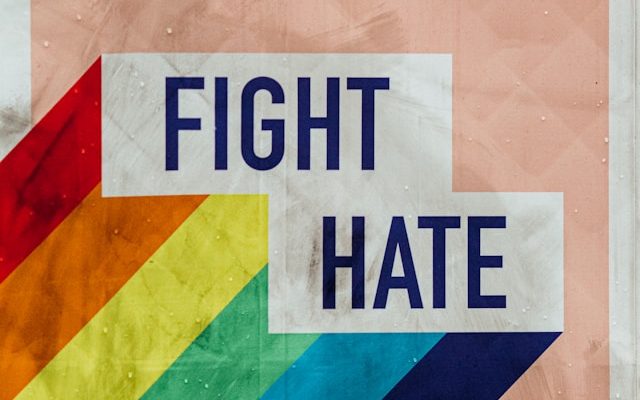They put Victoria ahead of other states and territories by offering a stronger shield from hate speech under both criminal and civil law. The reform extends existing protections for race and religion to now include gender, sex, sexual orientation and disability.
Despite the advance, more needs to be done to address systemic discrimination and the legacies of past harm.
Two-track reform
Victoria has repealed its outdated Racial and Religious Tolerance Act 2001, which was often criticized as overly complex, hard to use, and no longer fit for purpose.
The new laws create two new criminal offenses. One covers conduct that could incite hatred, serious contempt or ridicule towards someone based on a protected attribute. The other makes it illegal to threaten physical harm or property damage.
Both offenses carry penalties of up to five years in prison.
The civil side of the law has also been strengthened. It’s now easier to lodge a complaint about vilification—including online abuse—through the Equal Opportunity Act.
Public conduct that is “seriously contemptuous, reviling or severely ridiculing” of a person or group because of a protected attribute is now prohibited. So too, is hateful conduct likely to incite such sentiments.
The new laws also expand the powers of the Victorian Equal Opportunity and Human Rights Commission, which can now receive complaints, conduct research, and intervene in legal proceedings.
This kind of institutional support is important for ensuring the laws are understood and accessible. According to the Commission, they will make it easier for more people to take legal action against hate speech.
Importantly, the new laws make it possible to bring complaints not just about single attributes, but also intersectional experiences of hate.
This means a person targeted for being both queer and disabled, or both Muslim and transgender, could lodge a complaint. This kind of recognition is vital to understanding how hate works in the real world. It doesn’t always fit into neat legal boxes.
Equality Australia’s Anna Brown says the dual-track approach of combining criminal penalties with civil remedies is all about “cutting off hate at its source. The legislation makes it clear that hateful conduct is not just against humanity, it’s against the law.”
Free speech not at risk
Critics, including the opposition Liberal Party, say the new laws will stifle freedom of speech.
But the act includes clear safeguards to protect legitimate debate. It allows exceptions for artistic, academic, journalistic or religious expression—as long as it is done reasonably and in good faith. This balance seeks to protect free speech while limiting serious harm.
Further, the new criminal provisions run the risk of being underused because the evidentiary bar still remains high. To hold someone accountable, it’s not enough to show they used offensive or hateful language.
It must also be proven they meant to stir up hatred and there was an audience to be influenced. For example, if someone hurls abuse at a person on the street with no one else around, it might not be prosecutable.
According to legal experts, proving intent and the impact on others has always been difficult. Victims often find the process too complex or intimidating to pursue.
Rising hate speech
The changes come as hate speech and violence against LGBTIQA+ people is rising around the world. In the United States, President Donald Trump has signed an executive order stripping gender identity from federal civil rights protections.
Canada and some European countries have updated their travel guidance to caution LGBTQIA+ citizens—particularly transgender people—about new US entry rules.
In the United Kingdom, the Supreme Court ruled in April 2025 trans women are not legally considered “women” under the Equality Act. Across Europe, recent data shows violence and harassment against LGBTQIA+ people have climbed to record levels.
Here in Australia, antisemitic attacks surged by 316% over the past year, while anti-trans protests and hate-fueled vandalism are on the rise.
Reckoning with the past
Victoria has taken important steps in recognizing harm done to LGBTQIA+ communities. In 2016, the state formally apologized for the criminalization of homosexuality. Victoria Police followed with an apology for its historical mistreatment of LGBTQIA+ people.
But more is needed.
In 2023, New South Wales launched a Special Commission of Inquiry into LGBTQIA+ hate crimes, exposing decades of police inaction and injustice. And in 2024, Tasmania passed a bill to compensate people previously convicted under laws criminalizing homosexuality and cross-dressing.
Victoria could go further by launching a truth-telling process into historical harm against LGBTQIA+ people and creating a redress scheme to compensate those previously criminalized under unjust laws.
We can move beyond limiting hate speech to also reckoning with our past and rising prejudice.
Provided by The Conversation





